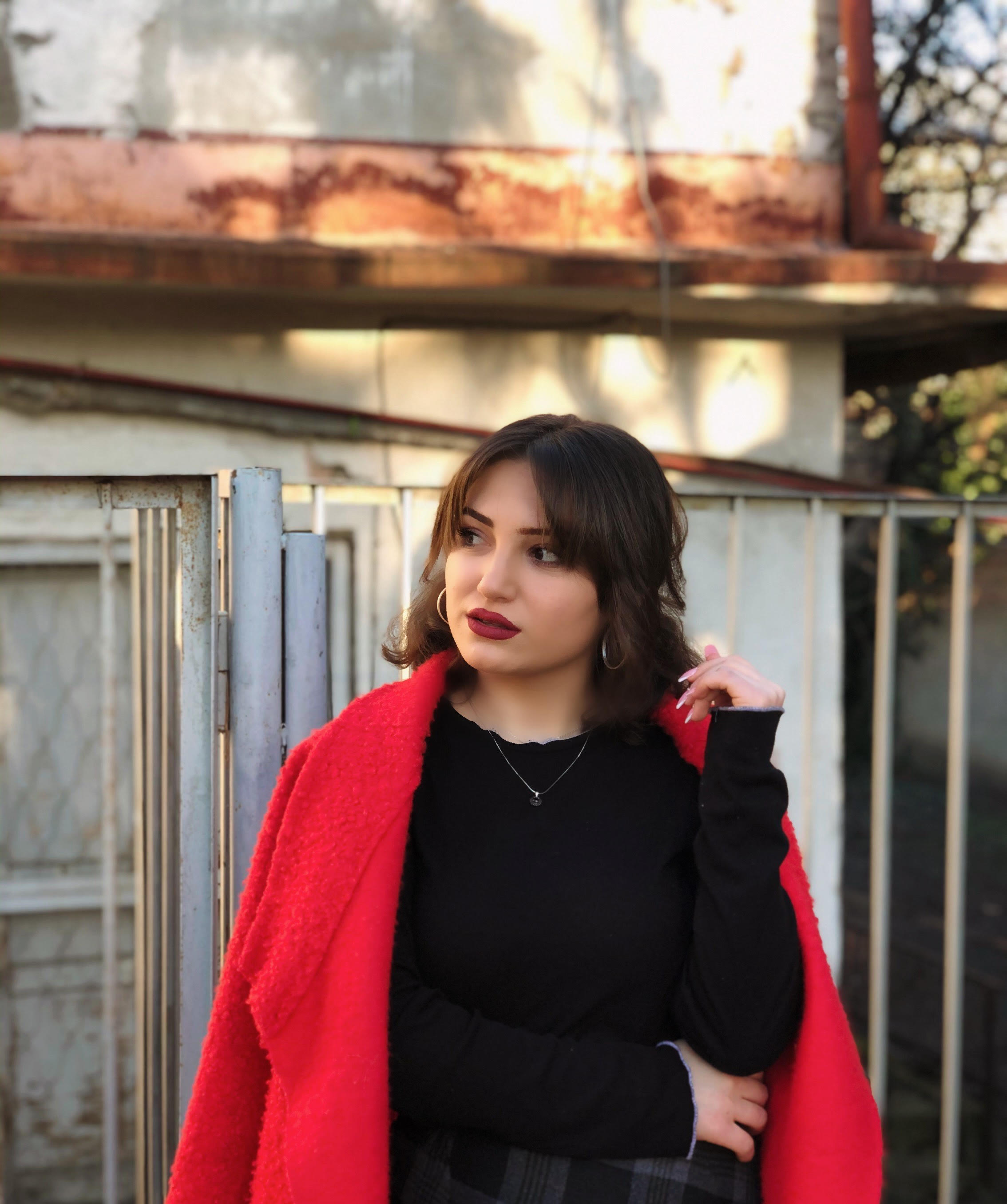By Nina Khuchua

Gender discrimination against women and girls, manifested through domestic violence and early marriage continues to be a most important problem in Georgia, and is especially acute for minorities. Chinara Kojaeva, 20, survived an early marriage by escaping from her house on her wedding day, with the help of a social worker and the police. She comes from a village, Kosalari, in the Tetritskaro Municipality. Police investigations led to her father being sentenced to prison for two years, for attempting to force his daughter to marry at the age of 17.
 “When I was a child I always said that I would never get married early. I saw women who were treated like slaves. I was 14 when my father tried to force me to marry for the first time. I’ve always wanted to learn how to protect those women who could not tell their stories aloud,” she said.
“When I was a child I always said that I would never get married early. I saw women who were treated like slaves. I was 14 when my father tried to force me to marry for the first time. I’ve always wanted to learn how to protect those women who could not tell their stories aloud,” she said.
Another issue, needing urgent attention, and sometimes related to early marriage, is domestic violence. According to the United Nations Population Fund (UNFPA) early marriage data on Georgia, 37.6% of ethnic Azerbaijani women and 4.5 % of ethnic Armenian women were registered as victims of domestic violence. Noticeably, 46.5% of them have incomplete or primary education, having had to drop out of school.
Even more tragic is the data provided by the Prosecutor’s Office of Georgia that shows in 2014-2015, 53 women were murdered, of whom 27 were victims of so-called “domestic killings”. Eighteen women were killed by their intimate partners, while in the rest of the cases femicide was performed by other family members (such as the father-in-law or the victim’s brother).
According to this analysis, out of the 27 Georgian femicide victims, the majority were ethnic Georgians; other ethnic groups included one Ukrainian, three Azeri, one Armenian and one Russian.
Aytan Yusubova, a Georgian, and member of the Azeri ethnic group from the Gardabani region, said, “Domestic violence happens very often in this region, and the rights of minority women have been increasingly violated, but information about the violence rarely reaches the police; therefore, reliable statistics on this issue don’t exist. People think this is a family problem, and if they talk about it out loud they will not get support.”
A major challenge that victims of violence from minority ethnic groups face in Georgia is that relevant services are not available for them. The shelter serving women from Marneuli operated in Rustavi, established by the Innovation and Reform Center with financial support from the EU, but it has closed. The Director of a program, Nato Gagnidze, said that the shelter helped women who were victims of domestic violence to learn new skills, and supported them psychologically. After only one year it stopped functioning, when funding stopped. Gagnidze said that 19 people, including minority women benefited from the project, and those who didn’t speak Georgian, could take language classes.``
Chinara had been one of the beneficiaries. “When I went to the shelter I did not speak Georgian. Sometimes they spoke to me with the help of an interpreter. My life is different now and I believe that I will be able to study at the Police Academy and enroll in law school. I decided to tell my story publicly because what happened to me happens to others too. I know what other girls are feeling - they are feeling what I was feeling.”
Kojaeva says Chinara’s case could set an example for others who face similar problems: Lack of knowledge of the Georgian language, a centuries-old tradition of early marriage, inaccessible education and a lack of any resources or support system. Effective initiatives and measures to integrate ethnic minorities into society are still too few in Georgia, but the hotline service established by the UNWomen organization gives immediate help to victims. It assists minorities in their own languages. Interested persons can call (116 006),